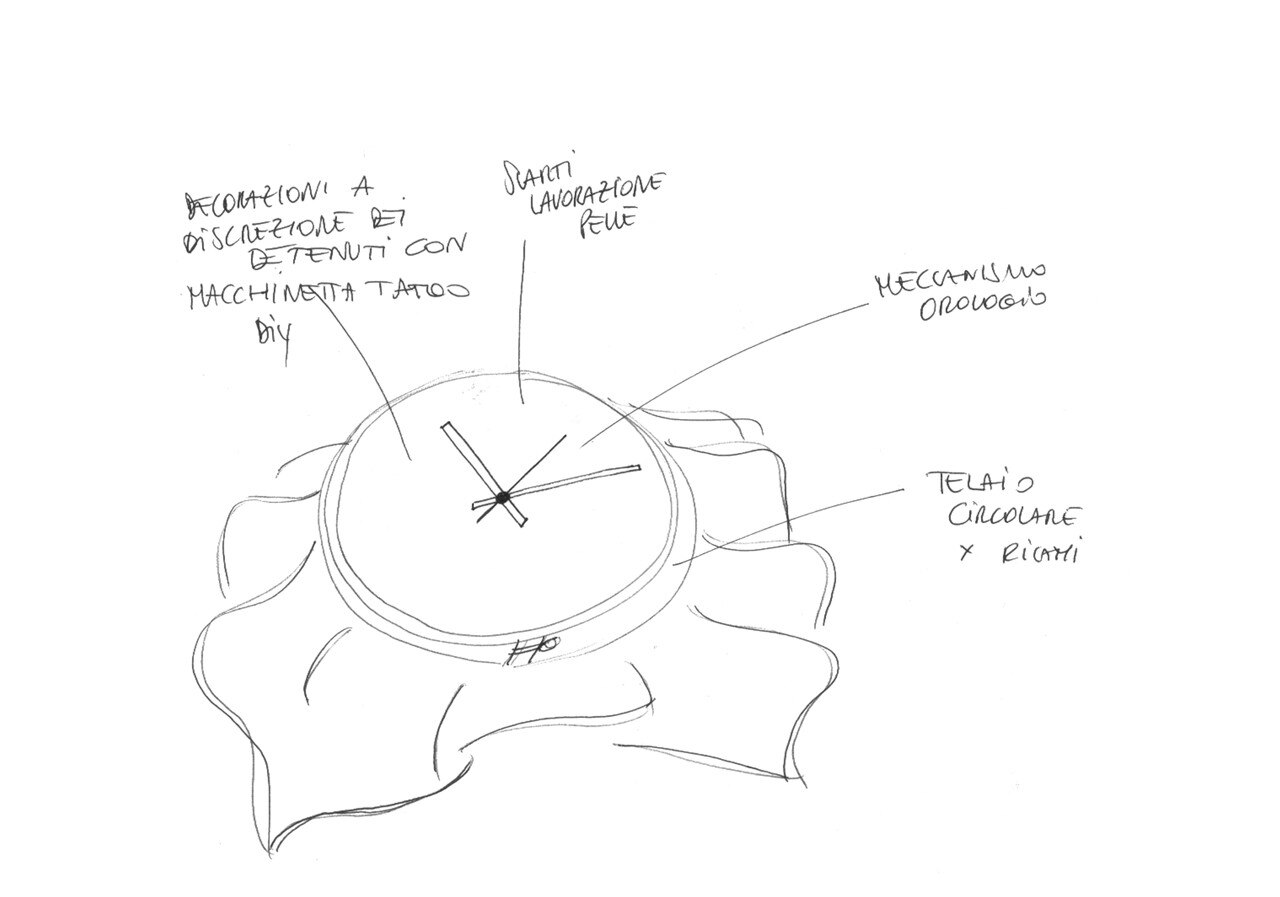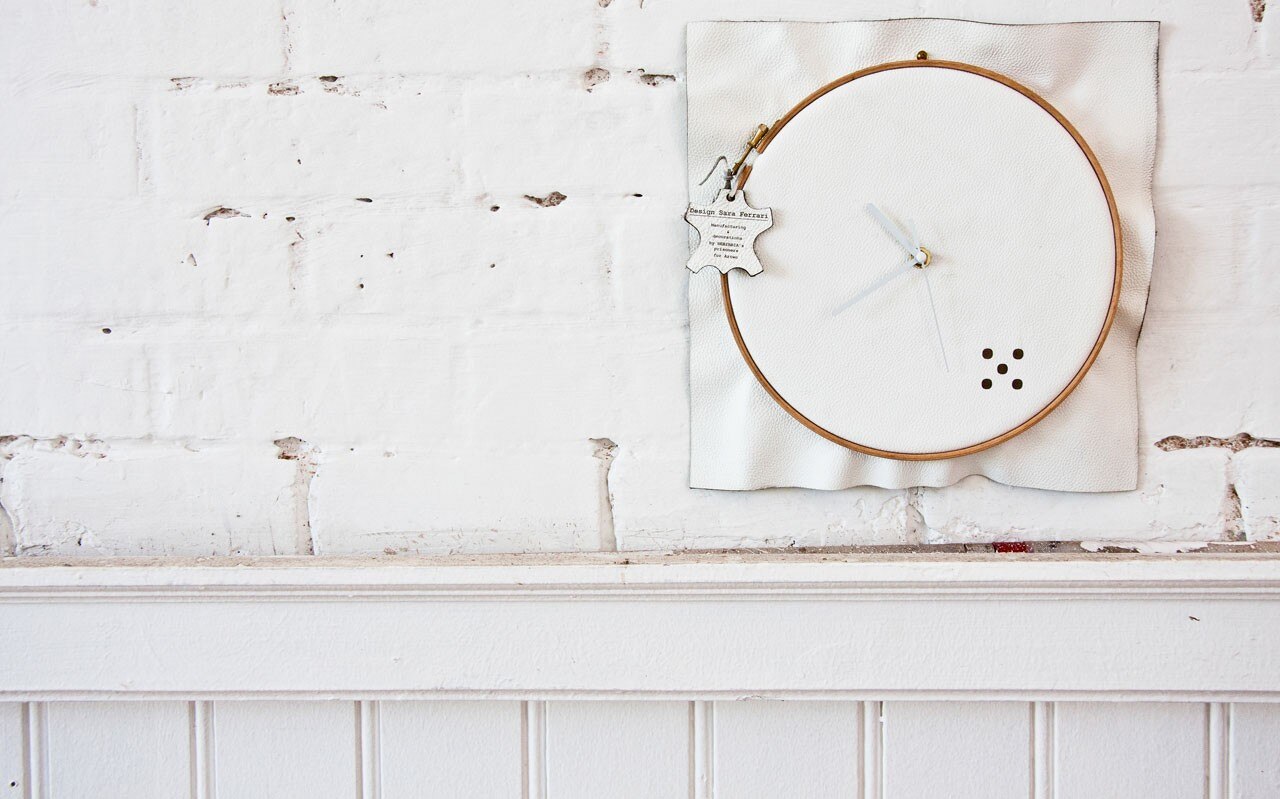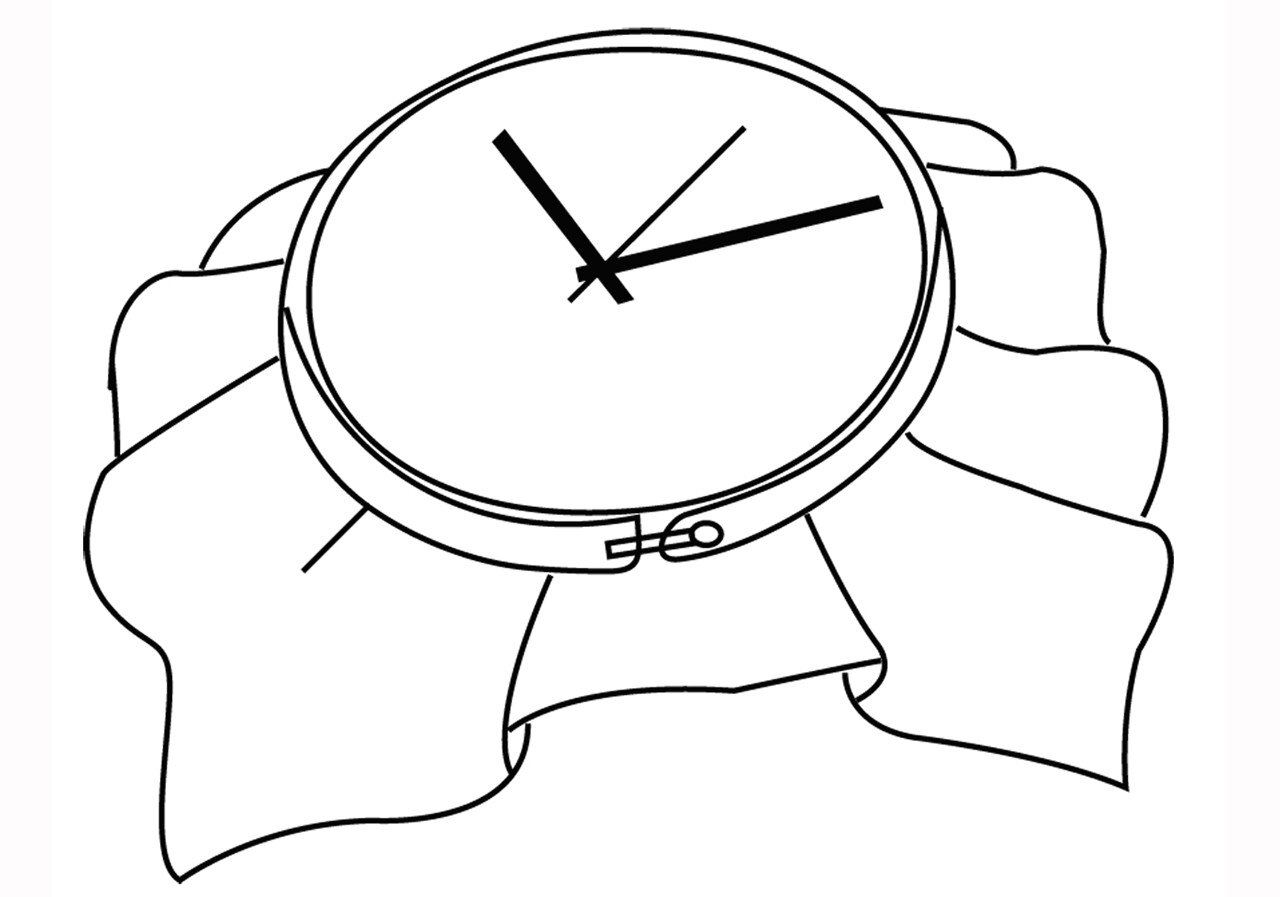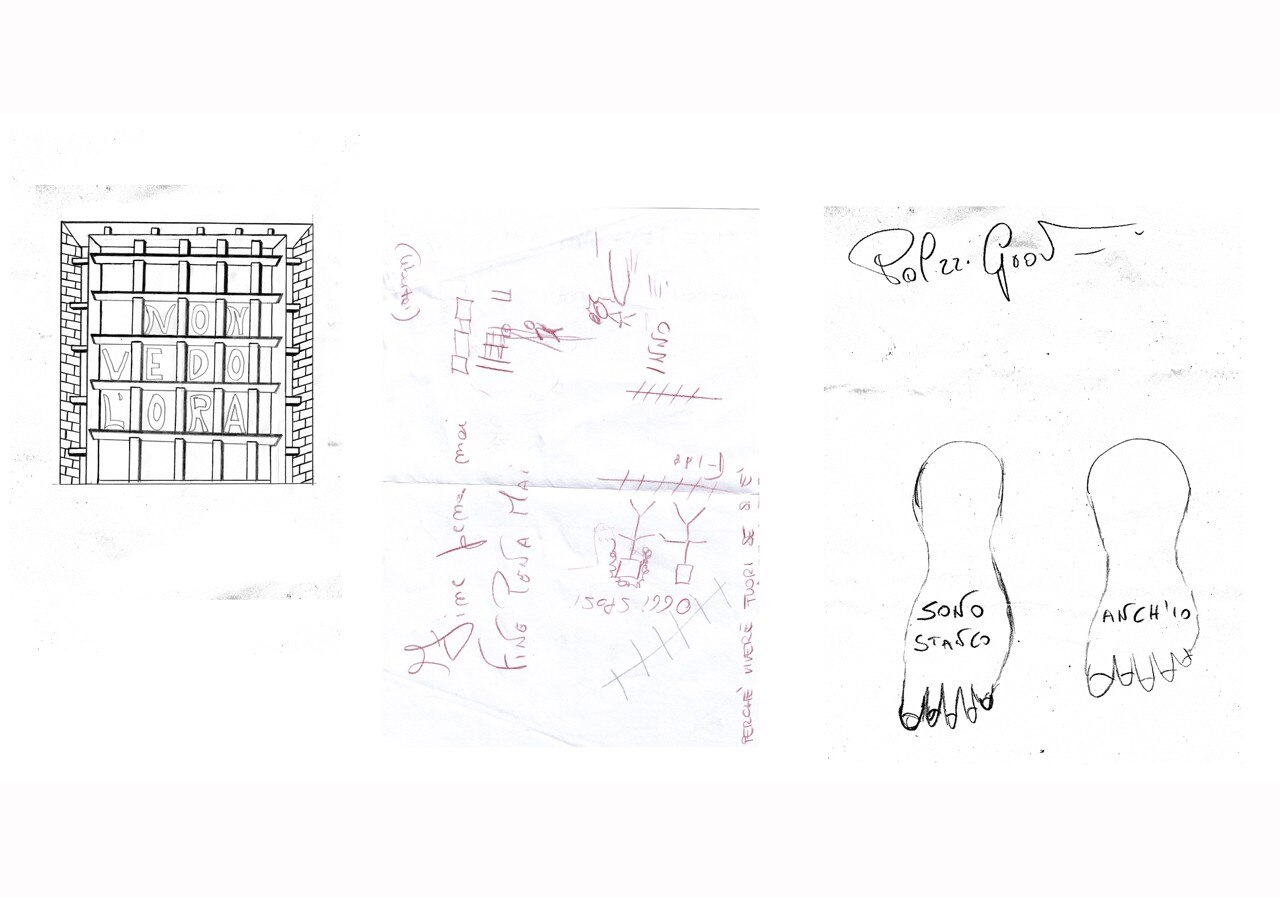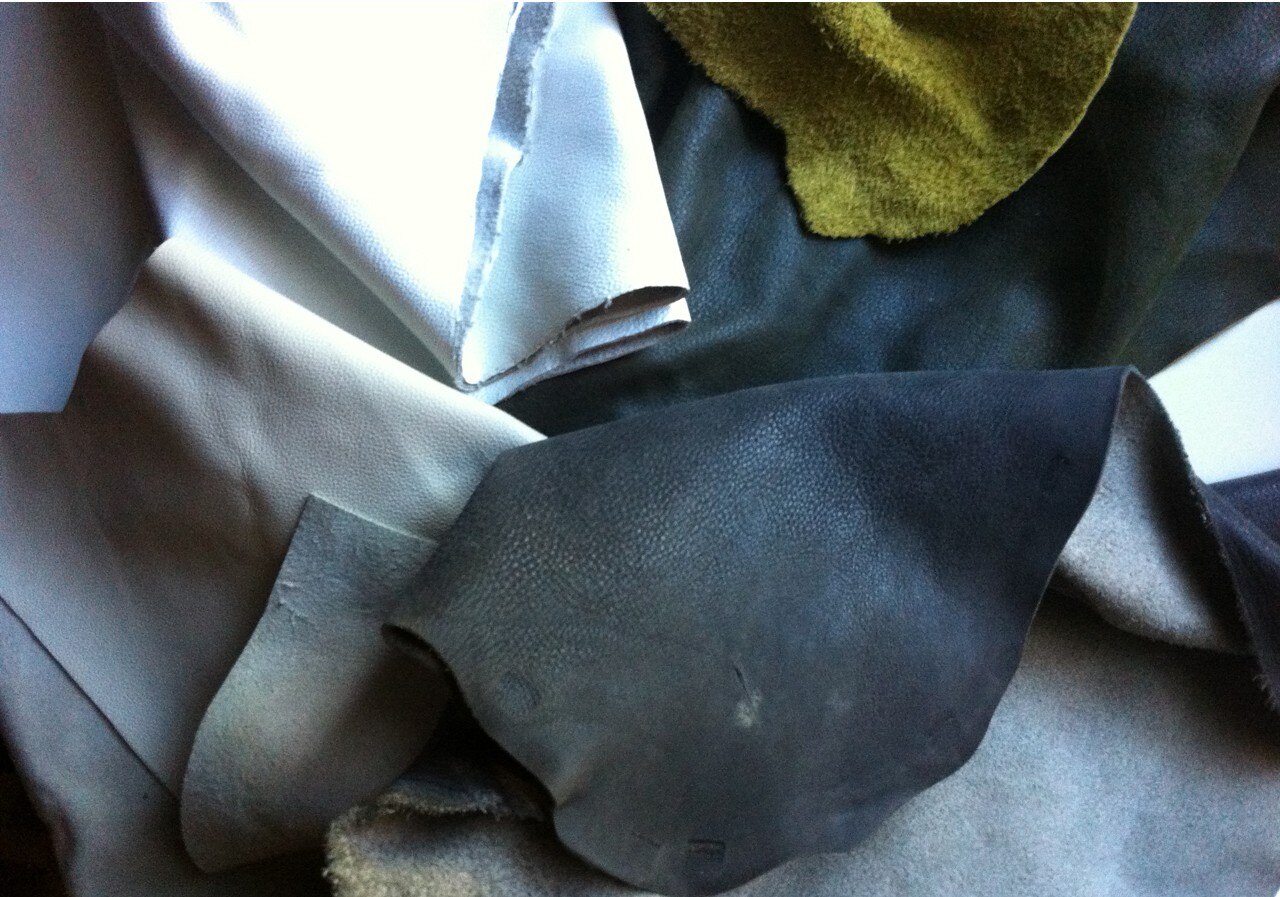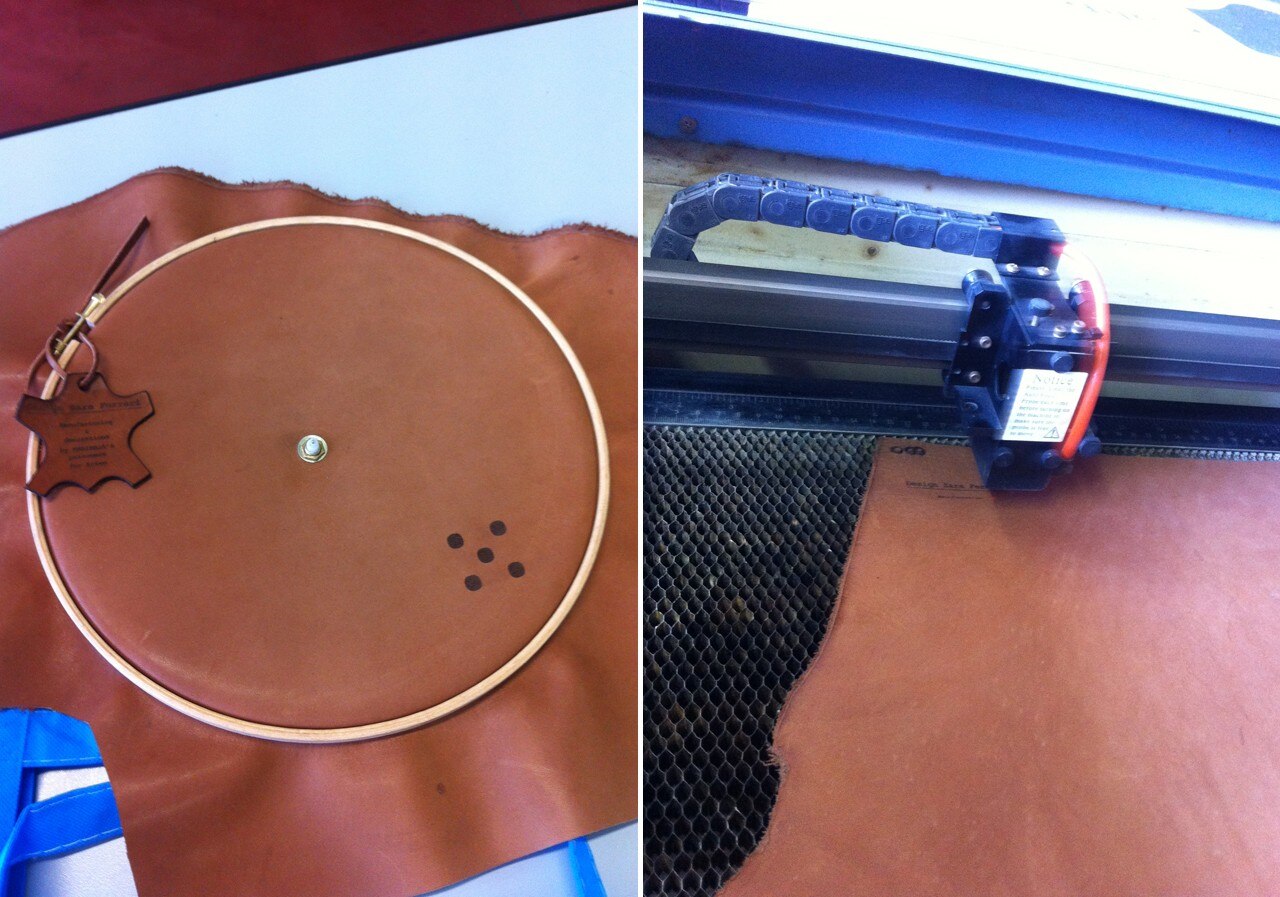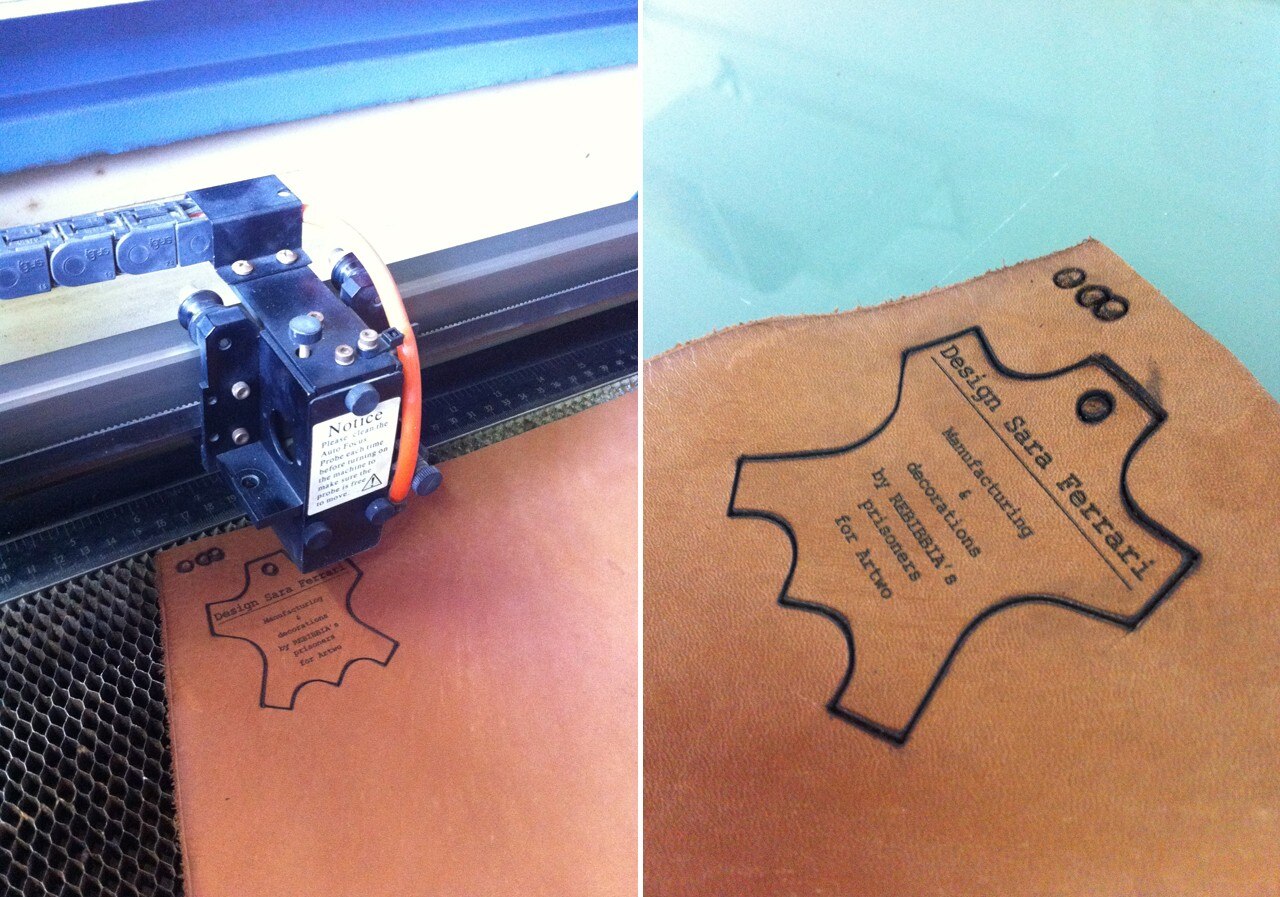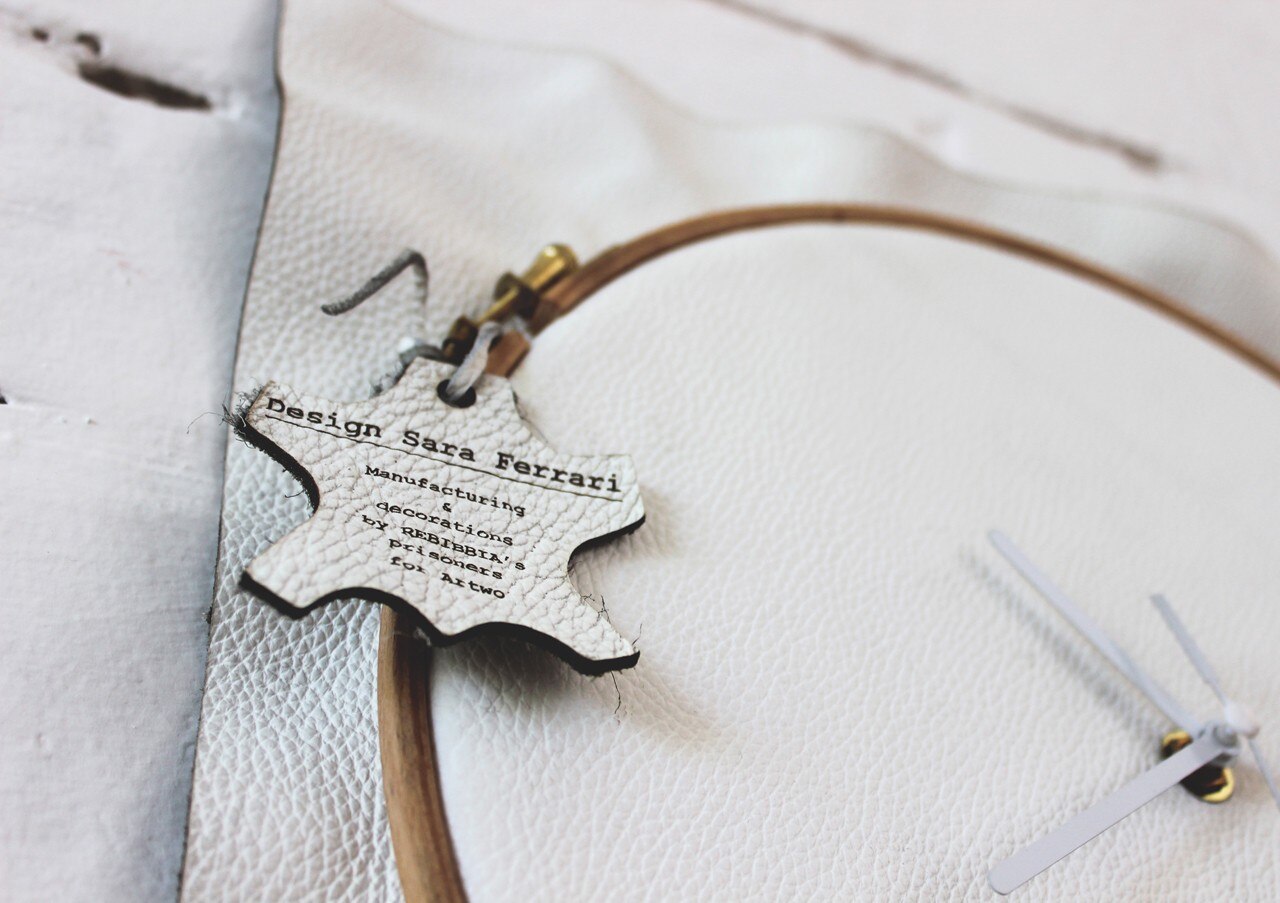
Prison tattoos are often made to somehow create a connection with the outside: marking the beloved names enforces the meaning of relationships that will hopefully continue once out.
Tattoos made in prison though are often done to kill time. Concentrating in the pain is considered a good distraction, a way to stop thinking, through “the making”.
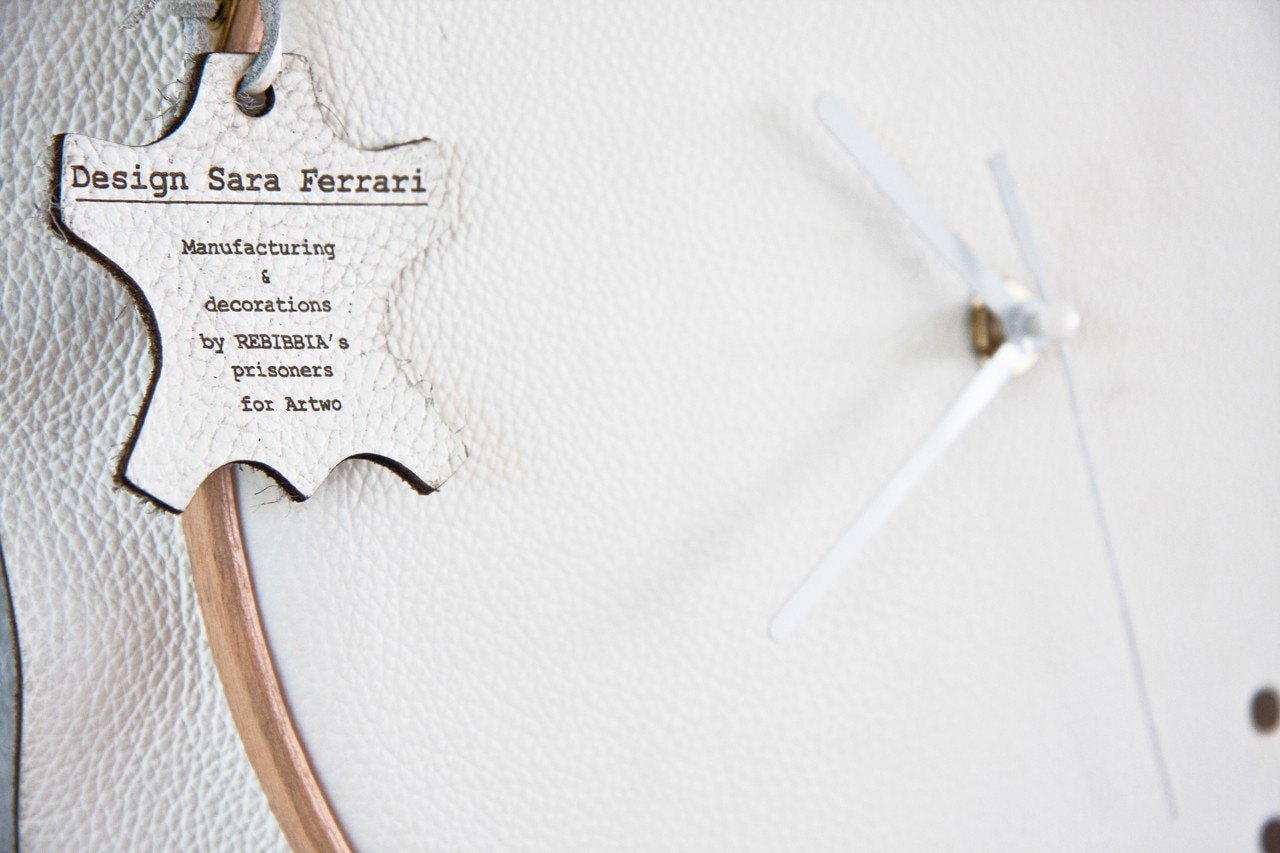
Once out though, most of the times prisoners regret to have market their skin that way.
With this project Sara Ferrari would like to give prisoners the possibility to “mark” a different kind of skin, a canvas to use as a carrier pigeon where to express their thoughts and ideas and send them outside.
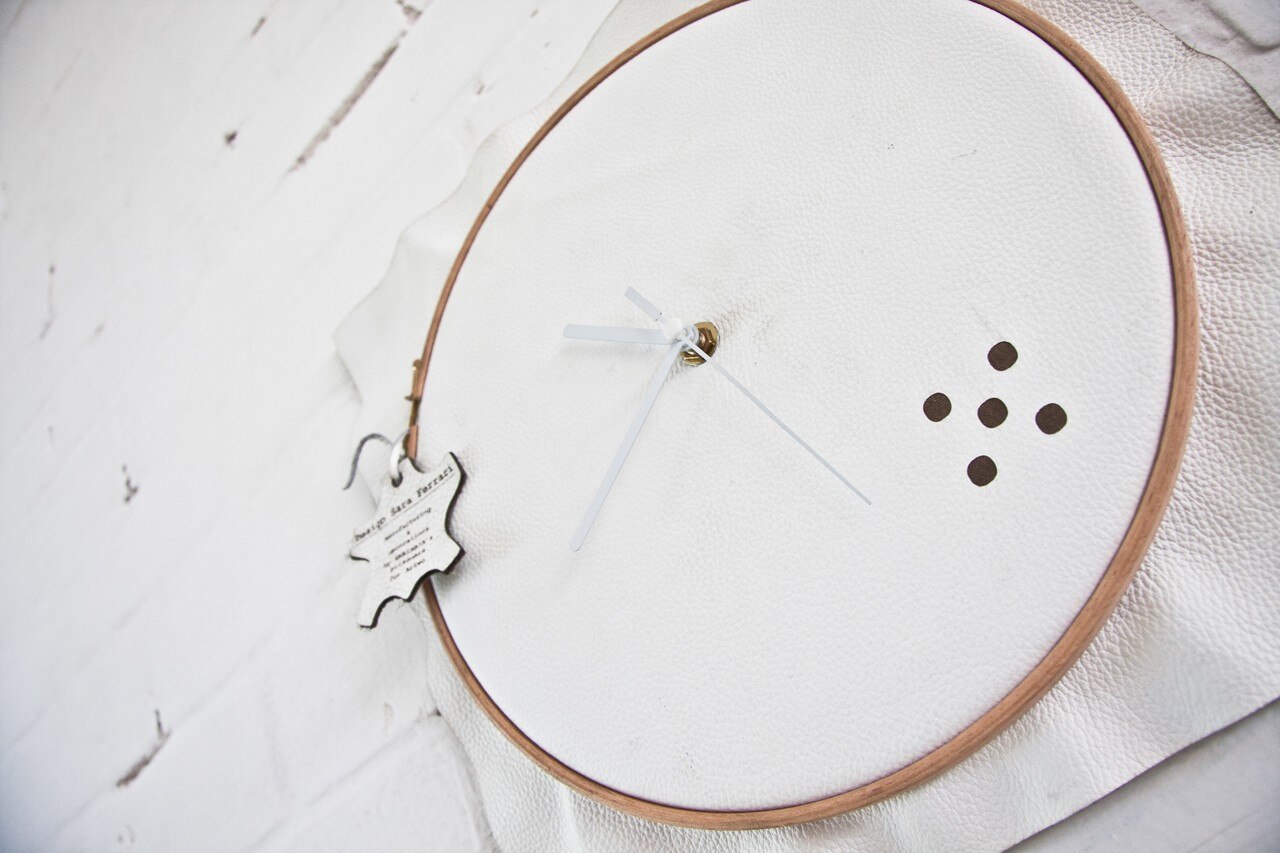
Wastes generated in the leather products industry will become the new skin to mark, a new precious surface where the prisoners’ thoughts will become decorations of a furnishing object such a wall clock.
Like this, the “doing time” will gain a different meaning and it will be transformed from simply “serving time” to “making and thinking time”.
The five dots, sometimes known as the quincunx, represent time spent in prison. The four dots on the outside are seen as the four walls, and the dot on the inside represents the prisoner.
The materials used are wastes from leather industries, round wood embroidery hoop, clock mechanism and clock hands. Every piece will be unique. Decorations will be designed by Rebibbia’s prisoners, compart G8, long sentence.
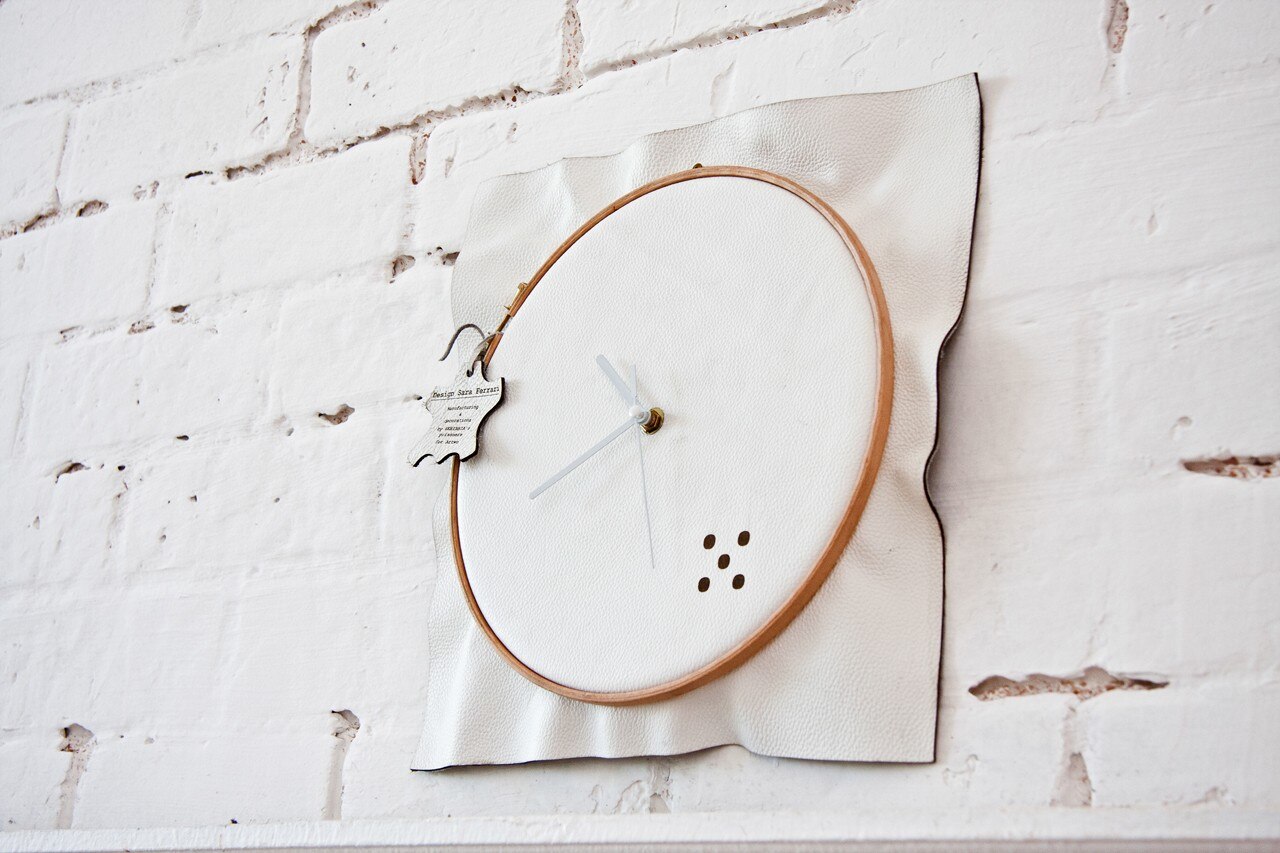
The project was commissioned to Sara Ferrari by Artwo, a gallery in Rome producing design objects using de-contextualized or recycled materials, based on social utility. Collaborating with non profit companies Artwo started a training program and a production workshop with the inmates of Rebibbia, one of the biggest prisons in Italy, where designers meet the convicted to share artistic and manual skills. All products are made by the inmates of Rebibbia’s prison.
